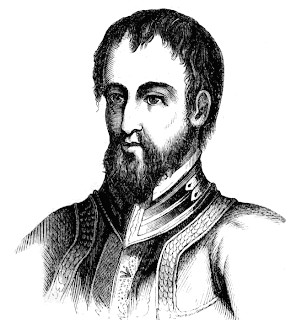 |
| Hernando De Soto |
Hernando De Soto Biography
Hernando de Soto (born 1941 in Arequipa) is a Peruvian economist known for his thoughts on the informal economy. Currently he serves as director of the Institute for Liberty and Democracy (Institute for Liberty and Democracy, ILD) in Lima, Peru.
Work
Hernando De Soto in 2000 authored a book titled "The Mystery of Capital" that feed into the disciplines of economics and economic activities of developing countries. Soto is the founder and leader of the Institute of Liberty and Democracy (ILD), an agency independent research institute located in Peru. Economist magazine stated that this institution is the second most important research centers in the world. Hernando Time magazine chose as one of the foremost innovators of Latin America. Evidence to explain why developing countries have never been out of the problems of poverty.
In this book mentioned that the real property owned by the developing countries are numerous. The absence of the legal system and good governance to make this wealth is not being tracked and recorded into the receiving State. Corruption and collusion and corruption practices law making property owned many developing countries is meaningless. Without a clear legal system Developing countries will still lag behind developed countries the advantages lie in the established legal system.
Clear legal system will make all kinds of property owned by the State either public or private will be recorded by the authorities. Thus management can be monitored and encouraged to continue to grow well. The process of recording and management of resources it would require an honest man and responsible. They gathered in a legal institution that is also honest and responsible.
The main idea promoted in the writings of de Soto is a community in the developing world generally do not have formal land tenure system is integrated, so that only informal ownership of land and goods. In the book Mystery of Capital, de Soto used the work of John R. Searle's The Construction of Social Reality. Here he discusses the social relations that are needed in the form of capital and make money. De Soto argues that the basis for economic success of Japan and American capitalism rooted in a clear system of property rights that have been made since the days before World War I. According to de Soto, modern development theory fails to understand the process of developing an integrated system of property rights so as to make the poor may not be able to use what they have informally for use as capital in building a business and entrepreneurship. As a result, a group of farmers in the developing world are always trapped in poverty, in which farmers can only grow to the needs of his own life.
The Other Path: Invisible Revolution in the Third World (1989), translated from the Spanish El Otro Sendero titled (1986).
The Mystery of Capital: Why Capitalism triumphs in the West and Fails Everywhere Else (2000)
The Other Path: The Economic Answer to Terrorism (2002)










